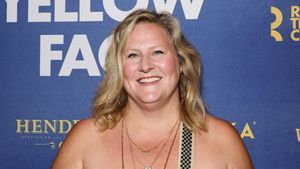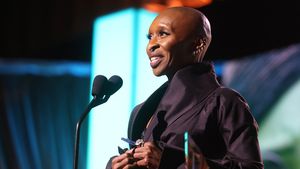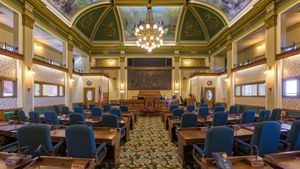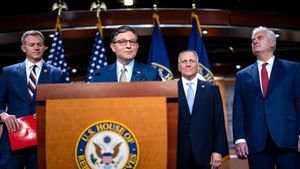As voters head to the polls in North Carolina today, turnout is expected to be high, which leaves opponents of Amendment 1, the constitutional amendment that would ban same-sex marriage and other unions, hopeful for an upset victory despite polling that indicates easy passage of the measure.
Amendment 1 proposes to make marriage between a man and woman the only legally recognized domestic union in the state. Opponents argue that the vague, broad wording of the measure would also ban civil unions, while yielding “unintended consequences” including denial of health insurance for the children of domestic partners and weaker protections for domestic violence survivors who are not married to their abusers.
Based on early voting projections, turnout on Tuesday could exceed 2 million, according to Protect All NC Families, the coalition working to defeat the amendment. More than 506,000 people voted early in this election, compared to 486,000 early voters in 2008, during the historic Democratic primary between Barack Obama and Hillary Clinton.
The coalition feels “very confident” about the results of early voting, according to Nation Hahn, director of online engagement. Their campaign made a strong early voting push on college campuses, where younger voters tend to be more progressive. Overall, the composition of early voters was 46% Democrats, 34% Republicans, and 20% unaffiliated, a group where amendment opponents see opportunities.
Hahn said that high turnout bodes well for the campaign to defeat Amendment 1. Primary elections tend to draw older, more conservative voters, so a central goal of the coalition has been to change and expand the electorate. Early voting results reported over the weekend showed that 56% of people who voted were unlikely primary voters, people who have never voted in a primary or have only voted in one primary in the past four years.
“The higher the vote goes, the closer you get to an electorate that is more disposed to oppose it,” he said.
While Amendment 1 opponents may be heading into Election Day with a turnout advantage, polls continue to indicate the measure will pass by a strong margin. The final Public Policy Polling survey this week showed the amendment leading by 55% to 39%, slightly changed from its 55% to 41% lead last week following an intense final stretch of campaigning from both sides.
However, according to PPP, only 46% of voters understand the extensive reach of Amendment 1. Those who know that the measure will ban both same-sex marriage and civil unions oppose it by 61% to 37%.
In addition to its get-out-the-vote operation, the coalition continues to try to reach voters with its education campaign about the wide-ranging adverse effects of the amendment. As of Monday night, Hahn said that volunteers were making 15,000 calls an hour, and three TV advertisements were playing in heavy rotation. A robocall from President Bill Clinton had reached 500,000 voters, and his former chief of staff Erskine Bowles, who served as UNC president, issued robocalls, as did former Charlotte mayor Harvey Gantt. Two final videos released online Monday highlighted the diverse, bipartisan coalition of elected officials, business leaders and clergy members that oppose Amendment 1.
By comparison, Vote For Marriage NC, the coalition working to pass Amendment 1, has not produced organized support from business leaders or Republican politicians. Tony Perkins, president of the Family Research Council, has reportedly made robocalls, and the evangelical pastor Billy Graham and his son Franklin have advocated for the amendment in recent days.
Recent fund-raising reports show that Protect All NC Families has raised $2.5 million, with more than 11,000 individual donors. More than 75% of donations have come from inside the state. Vote For Marriage NC has raised $1.4 million, most of it from groups.
Polls close in North Carolina at 7:30 p.m. With the Republican presidential primary no longer competitive, Amendment 1 is drawing most of the energy and attention.
Should the amendment be defeated, it would represent a major turning point in the history of ballot measures against same-sex marriage. Since 1998, opponents of same-sex marriage have won 32 of 33 such votes, the Pew Center on the States reports. North Carolina remains the only Southern state without such a constitutional ban, although state law already prohibits same-sex marriage.
Even if the amendment passes, opponents of the measure say they have exceeded expectations and built an unprecedented new coalition in their state. The structure, plus an army of fresh recruits, will serve them in campaigns to come, no matter what happens with Amendment 1 on Tuesday.
“Regardless of the outcome, the foundation is laid for this fight to carry on,” said Hahn.
Follow SheWired on Facebook.
Follow Shewired on Twitter.


























































































































